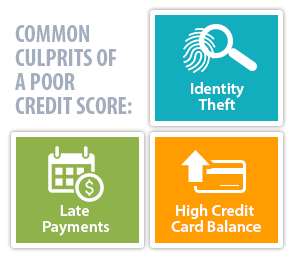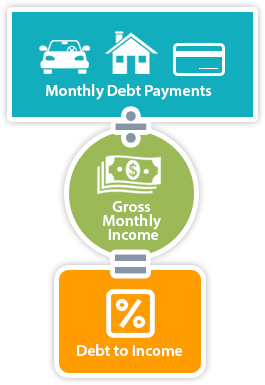 There are a number of reasons one might find themselves in an undesirable credit situation – some of which may be related to poor judgment and choices, other times it may be a simple matter of circumstance. Regardless of how the situation came to pass, the next best steps are to work on repairing your score and looking forward to a brighter financial future.
There are a number of reasons one might find themselves in an undesirable credit situation – some of which may be related to poor judgment and choices, other times it may be a simple matter of circumstance. Regardless of how the situation came to pass, the next best steps are to work on repairing your score and looking forward to a brighter financial future.
To begin, it’s important to identify and resolve the events that lead to the poor score – otherwise, it’s more likely the underlying problem will resurface, making your efforts in vain. This applies equally to all circumstances, such as those who make consistently late payments, or even those who have suffered from identity theft. Once the concern is addressed, you can take active measures to begin improving your overall score.
Practicing responsible use of credit
Improving your credit score – more than anything else – requires consistency. Good choices are a good start, but it’s the length of time over which you can demonstrate responsible credit habits that really makes the difference. Similarly to how one establishes credit, you’ll want to take similar steps with the primary difference being that you don’t have a blank slate and will have some ground to make up. In general, you’ll definitely want to consider the variables that factor into your credit score and ensure you’re performing well on all counts.
- Payment History
If you have any late payments that are still standing, pay them as soon as you can. Although late payments remain on your credit history for seven years from the first date they go into collections, their adverse impact reduces over time – recent late payments are more derogatory that older ones. That being said, if you can’t bring all your payments current, start with the most recent past-due payments first. These will improve your credit score the most, so work backwards from there as permitted by your budget. - Credit Utilization
If your credit cards are maxed out or close to it, work to bring them down to a more reasonable level of utilization. A utilization of approximately 10% is ideal, but below 20% is a great starting goal. - Length of Credit History
Length of credit history can’t be expedited, but do ensure you don’t close your older lines of credit, which will remove them from your history average. Additionally, adding too many new lines of credit at once will adversely factor into your length of history. - New Credit
If you haven’t applied for a new line in a while, it may be a good first step to diversifying your credit lines. However, too many new lines at a given time can send the wrong message to those viewing your score, and you may appear desperate for credit. Avoid applying for unnecessary lines of credit, and only do so if you’re certain a new line can be managed responsibly. - Types of Credit
Finally, ensure you have a healthy variety of credit lines without compromising your ability to maintain each line. This can demonstrate to lenders that you have experience with an assortment of credit lines, and prove helpful as you apply for larger loans, such as a mortgage.
Debt-to-income ratio

It’s important to note, a financial situation is never inherently stable or unstable simply because someone has a high income or large net worth. Many celebrities have declared bankruptcy due to the mismanagement of money. Although the numbers that celebrities work with are much larger than most people’s, the principles of managing your finances responsibly remain the same – maintain a healthy debt-to-income ratio. When your monthly expenses are disproportionate to your monthly income, it becomes easier to fall into a pattern of difficulty paying bills, using additional credit, or falling into significant debt that requires undue hardship to resolve – including bankruptcy.
When rebuilding your credit, take care to keep your debt at manageable levels that you can reasonably pay with your income, and make an effort to understand the above list of variables that affect your credit score so that you can excel in each category. It may take some time, but consistently responsible choices will absolutely improve your score and get you closer to your financial goals.
Financially speaking series:
Part 1: Why is credit so important? | Part 2: How do you establish credit? | Part 3: How do you repair credit? | Part 4: How do you monitor credit? | Part 5: What is interest? | Part 6: How does credit affect you?



